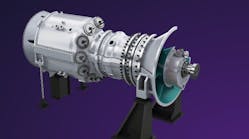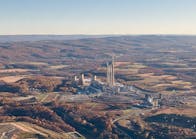IRCAI and Amazon Web Services offering Cloud Aid to AI Entrepreneurs to Solve Climate Crisis
It’s highly debatable, and maybe a little conspiratorial, to predict whether artificial intelligence (AI) will take over the world. AI is wicked smart, but those droids haven't proven themselves yet.
It’s not a cyborg-level stretch, though, to see AI and its advanced, intuitive computing capacity creating new ways to sustain the world. Climate-tech tools of the future could vastly expand on the efficiency and balancing innovations of recent decades.
To that end, the International Research Centre on Artificial Intelligence (IRCAI), a wing of global relief group UNESCO, and Amazon Web Services (AWS) are launching a new global investment program to better fund entrepreneurs and startups working on new solutions to solve the climate crisis and industrial processes contributing to those damages.
Working together with AWS, IRCAI is forming the Compute for Climate Fellowship. The support mechanism is already poised to reach out, with applications received by August 31 to be selected for development this year.
“Artificial intelligence is quickly developing as both an academic and practical discipline. At IRCAI, we aim not only to be a guiding post in the development of these new technologies, but to ensure they are a force for good for humanity,” said John Shawe Taylor, director at IRCAI, said in a statement. “Through this collaboration with AWS, we want to find some of the most innovative startups out there and help them ethically leverage AI and advanced computing to build groundbreaking solutions that address some of the key challenges created by the climate crisis.”
IRCAI and AWS will support proposals which “think big,” says the organization. They want ideas using advanced cloud computing and AI tackling six key challenges in climate change: Climate risk and resilience, food security, biodiversity and conservation, climate-related health, the circular economy, and environmental, social, and governance (ESG) analytics.
Any area which utilizes AI and advanced computing will under consideration--and distributed energy resources surely qualify.
"Renewable energy and energy efficiency are areas we’re really excited about," Kathryn Van Nuys, AWS' global head of specialized segment startups, said in an emailed response to questions from EnergyTech. "We have been focusing on being more energy efficient with our own data centers—Amazon is the world’s largest corporate buyer of renewable energy and AWS has pledged to be fully powered by renewable energy by 2025—as well as have made several investments to help our customers to do better in this space, as well.
Those climate-tech startups chosen will have access to a variety of technical resources to build their proof of concepts, including access to a team of AI experts, high performance computers, and machine learning.
Earlier this year, IRCAI released its “Global Top 100 Report” looking at key project solving problems generated by the climate crisis. These 2022 projects address sustainability goals as detailed by UNESCO.
According to IRCAI, of those 100 projects, 15% dealt with affordable and clean energy objectives, and nearly half explored ways to improve sustainability through industrial and infrastructure projects.
AWS is the cloud-computing platform subsidiary of online retailer Amazon. Last year, AWS introduced a new computing tool to help customers calculate the environmental and emissions impact of their cloud-computing workloads.
Several years ago, Amazon seeded $2 billion in the Climate Pledge Fund to invest to companies aiming for Net Zero goals. Amazon is also reportedly one of the world’s largest purchasers of utility-scale renewable energy projects through long-term power purchase agreements.
On the power generation side, AWS has started transitioning to hydrotreated vegetable oil to power backup energy resources at data centers in Europe.
"HVO is a renewable, biodegradable, and non-toxic fuel that can be made from waste cooking oil, or vegetable, plant, and residue oils. It can reduce greenhouse gas emissions by up to 90% over the fuel’s lifecycle when compared with fossil diesel," Van Nuys said. "HVO and other renewable diesels are proven to be more compatible with industrial machinery than biodiesel as they don’t require any modification to the fuel systems and can remain stable even in the coldest winter temperatures.





